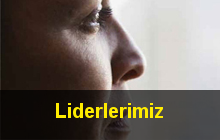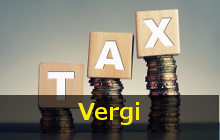
English translation
Ernst & Young Türkiye
Independent audit in the New TCC
Turkish Commercial Code No. 6762, which was published in the Official Gazette dated 9 July 1956 and became effective as of 1 January 1957, has been implemented approximately for 55 years.
This Law has ceased to be effective with the introduction of New Turkish Commercial Code (NTCC), enacted on 13 January 2011 and promulgated in the Official Gazette dated 14 February 2011.
Although different effective dates have been determined for different provisions of the NTTC, the general effective date of the Law is 1 July 2012. Before the law entered into force, it had been subject to many changes due to the Law No. 6335, enacted on 26 June 2012 and promulgated in the Official Gazette dated 30 June 2012.
This article discusses the "Independent Audit" regulations in the NTCC and the current situation of independent audit after the amendments by Law No. 6335.
1. Auditor
1.1 Those qualifying as auditors
Those qualifying as auditors have been listed in article 400 of the NTCC. Accordingly;
(1) An auditor may be a person licensed as sworn-in certified public accountant or certified public accountant under Law no. 3568 on Certified Public Accountancy and Sworn-in Certified Public Accountancy and persons authorized by the Public Surveillance, Accounting and Auditing Standards Board and/or their partners or equity companies consisting of these persons. In case one of the following conditions exists, sworn-in certified public accountant, certified public accountant and/or equity companies and one of the shareholders of these and those working under these shareholders or person(s) whom the persons mentioned in this sentence perform their professions with can not be auditors in the relevant company.
That is, if one of those listed in the previous sentence;
a) Is a shareholder of the company to be audited,
b) Is a manager or employee of the company to be audited or has carried this title within three years before he was appointed as an auditor,
c) Is a legal representative or representative, board member, manager or owner of a legal person, commercial company or commercial enterprise associated with the company to be audited, or has more than twenty per cent share in these or is a lineal relative, spouse or an affinity by blood or marriage including third degree relatives of a board member or manager of the company,
d) Works at an enterprise that has contact with the company to be audited or has more than twenty per cent share in such a company or serves in any way under a real person who has more than twenty per cent share in the company where he will serve as an auditor,
e) Has performed an activity for or has contributed to the bookkeeping or preparation of the financial statements of the company to be audited, other than the auditing activity itself,
f) Is the legal representative, representative, employee, board member, shareholder, owner of real or legal persons or one of their shareholders who cannot serve as an auditor as per clause (e) because they have performed an activity for or contributed to the bookkeeping or preparation of the financial statements of the company to be audited, other than the auditing activity itself, or is the real person who cannot serve as an auditor as per the same clause,
g) Works under an auditor that cannot serve as an auditor since he meets the conditions in clauses (a) and (f),
h) Has derived more than thirty per cent of his total income gained from professional auditing activities within the last five years from audit and advisory services offered to the company that will be audited or to companies that have more than twenty per cent share in the former, and if he expects to derive such income in the current year as well,
this person cannot serve as an auditor.
As per second paragraph of the same article, an auditor selected as an auditor of the same company for seven years in total within ten years cannot be selected as an auditor unless three years have passed, and Public Surveillance, Accounting and Auditing Standards Board is authorized to reduce these periods.
The concept of rotation as stated in the second paragraph of the relevant Law has been defined as follows: "If an auditor appointed by an independent audit firm for auditing the company has issued audit report for that company during successive seven years, that auditor shall be changed at least for two years."
Thus, the concept of rotation has been reflected in a clear and determinative manner that also supports the "independency" principle which constitutes the essence of paragraph 1, and the scope has been generalized by removing the limitation to the companies subject to CMB and BRSA legislation.
By the provision "An auditor may not provide advisory or service to the company he is auditing except for tax advisory and tax audit, and may not conduct this through a subsidiary company", paragraph 3 of the mentioned article has stated the requirement for the independency of the auditor. This is a regulation parallel to global practices, and independency of an auditor against the company he is serving is an essential condition.
1.2 Selection
The auditor shall be selected by the general assembly of the company, whereas the auditor of the group of companies shall be selected by the general assembly of the parent company.
The auditor shall be selected before the end of each operating period and the operating period in which he will perform his duty in any event. The selection shall be made by the general assembly of the company. Since audit refers to the auditing of the activities of company management, the Law has granted this untransferable authority to the general assembly.
The auditor shall be selected until the fourth month of the operating period of the company.
As per paragraph 2 of provisional article 6 of the NTCC, companies to be subject to audit in 2013 shall select their auditor through their authorized body until 31 March 2013. The selection of the auditor shall terminate the duty of the former auditor.
Duties of former auditors of the companies not subject to audit shall be terminated on 31 March 2013.
2. Council of Ministers Decision Draft relating to the determination of the companies that will be subject to independent audit
Companies that will be subject to independent audit under the NTCC shall be determined by the Council of Ministers Decision.
On the basis of the Council of Ministers Decision which was a draft as of the date of our work, our explanations on the companies which will be subject to independent audit as from 2013 and 2014 are provided below.
Since the Council of Ministers Decision is still a draft, we would like to note that the explanations and limits provided below are not definite, but will be finalized after the Decision is promulgated in the Official Gazette.
According to article 1 of the Decision Draft;
(1) Annual financial statements of all companies listed in the list no. (I) attached to this Decision and companies which meet the criteria for asset size, annual net sales revenue and number of personnel specified in the list no. (II) as per article 2 that will be prepared in line with the Turkish Accounting Standards (TAS) shall be subject to independent audit within the framework of the provisions of Law No. 6102 and Decree Law no. 660 on the Organization and Duties of Public Surveillance, Accounting and Auditing Standards Board.
(2) Upon the request of its shareholders owning ten per cent or more of its capital or voting rights, a company shall become subject to audit, limited to the first fiscal period that will end after the current general assembly or the first general assembly to be held. If the shareholder requesting independent audit is an equity company subject to independent audit, if the company requesting independent audit is an affiliate, business partner or subsidiary of this company, this provision shall not apply.
Considering list no (I), it can be inferred that, regardless of the size criteria relating to the firms operating in regulated markets such as CMB, BRSA, Insurance etc., companies operating in markets such as Energy Market, Electricity Market, Petroleum Market etc. shall be subject to independent audit by limiting the size criteria to a certain extent.
Companies in list no. (I) shall be subject to the provisions about independent audit as from 1 January 2013.
As per article 2 of the Decision draft;
(1) If Companies exceed the limits of at least two criteria among three criteria specified in list no. (II) attached to the Decision in two successive fiscal periods, they shall be subject to independent audit. Companies subject to independent audit shall be excluded from the scope of independent audit as of the following period only if they remain below the limits of at least two of these criteria in successive two fiscal periods or they remain below the limits of at least two of these criteria at the rate of twenty per cent of more.
(2) In the determination of whether companies have exceeded the limits of two criteria among the three criteria specified in list no. (II) attached to this Decision, financial statements prepared in previous years as per the effective legislation shall serve as a basis for the asset size and annual net sales revenue of the company, whereas average number of personnel of previous years shall serve as a basis for the number of personnel.
(3) With regard to the companies which are obliged to prepare consolidated financial statement as per TAS; in the determination of whether they have exceeded the limits of two criteria among the three criteria specified in list no. (II) attached to this Decision; annual consolidated financial statements shall serve as a basis for balance sheet total and annual net sales revenue, whereas the total number of personnel of the parent company and subsidiary determined as per the second paragraph of this article shall serve as a basis for the number of personnel.
Companies under list no. (II) shall be subject to the provisions of independent audit as from 1 January 2014.
List no. (I)
Companies to be subject to independent audit
1)Among the companies subject to the regulation and supervision of the Capital Market Board under the Capital Market Law of 28/7/1981 no. 2499:
a) Banks exclusively for intermediary activities,
b) Intermediary institutions
c) Portfolio management companies,
ç) Investment trusts
d) Mortgage finance companies
e) Joint stock companies with capital market instruments quoted on a stock Exchange and/or other organized markets,
f) Companies whose capital market instruments are not quoted on a stock Exchange and/or other organized markets, but which are deemed as publicly listed under the Law no. 2499,
g) Stock exchanges, other organized markets and depository trust companies that are regulated under the Law no. 2499 and operate as joint stock companies.
2)Among the companies subject to the supervision and regulation of the Banking Regulation and Supervision Agency under the Banking Law no. 5411 of 19/10/2005;
a) Deposit banks,
b) Participation banks,
c) Investment banks,
ç) Development banks,
d) Rating institutions,
e) Financial holding companies,
f) Financial leasing companies,
g) Factoring companies,
h) Financing companies,
i) Asset management companies,
j) Companies with qualified shares as described in the Law no. 5411 in financial holding companies.
3) Insurance, reassurance and retirement companies operating under the Insurance Law no. 5684 and the Law no. 4632 on Private Retirement Saving and Investment System.
4)Authorized establishments (Exchange offices) (those who meet at least two of the criteria specified in the list no. (II) attached to this Decision, considering half of such criteria) and precious ore intermediaries and joint stock companies engaged in the production or trade of precious ores, which are allowed by the Undersecretariat of Treasury to operate as members on Istanbul Gold Exchange.
5)Except the ones specified below, license owner legal entities, certificate owner legal entities and companies with authorization certificate, which operate in the energy market under the regulations and supervision of the Energy Market Regulation Board, as per the Electricity Market Law no. 4628, Oil Market Law no. 5015 and Liquefied Petroleum Gases (LPG) Market Law no. 5307;
a) Legal entities with auto producer license and operating in the electricity market.
b) Among the license owners operating or to operate in the electricity market, legal entities with Production or Auto producer Group license which produce electrical energy in one or multiple facilities in the same legal entity and whose total installed capacity is equal to or below 100 megawatts (mechanical).
c) Legal entities with Organized Industrial Zone (OIZ) Production and OIZ Distribution license, which operate in the electricity market.
6)Media service provider equity companies owning National Terrestrial Radio and Television, Satellite and Cable and Television and Regional Terrestrial Radio and Television (those who fulfill at least two of the criteria specified in the list no. (II) attached to this Decision, considering one third of such criteria).
7)Joint stock companies subject to the supervision of Information Technologies and Communication Board under the Telegram and Telephone Law dated 4/2/1924 no. 406, Radiotelephone Law no. 2813, Electronic Signature Law no. 5070, Universal Service Law no. 5369, Law no. 5397 on the Amendment of Certain Laws and Electronic Communication Law no. 5809 (those who fulfill at least two of the criteria specified in the list no. (II) attached to this Decision, considering half of such criteria).
8)Companies where the state, special provincial administrations, municipalities and other legal public entities, Professional institutions in the nature of public institution, trade unions, associations, foundations, cooperatives and the parent entities thereof have shares and governing power; warehouse companies with agricultural products license that are established as joint stock companies under the provisions of the Law no. 5300 on Warehouse Operation with Agricultural Products License and stores established as joint companies under the Law no. 2699 on General Store Operation (those who fulfill at least two of the criteria specified in the list no. (II) attached to this Decision, considering half of such criteria).
List no. (II)
Companies to be subject to independent audit
1) Equity companies who, alone or together with their affiliates, meet at least two of the three criteria below;
a) Asset size equal to and higher than 150 million Turkish Lira.
b) Annual net sales revenue equal to and higher than 200 million Turkish Lira.
c) Number of employees equal to and above 500.
3. Conclusion
The NTCC no. 6102 has come into force on 01.07.2012 except certain provisions. The provisions of the Law on independent audit on the other hand shall become effective as of 01.01.2003.
Before the Law became effective, Law no. 6335 has amended many articles including the provisions about independent audit, and many significant contributions that would be made to the business world of our country have been either mitigated or removed by these amendments.
Even though provisions of independent audit have been mitigated and the initial obligation of all equity companies to be subject to independent audit has now been left to the determination of the Council of Ministers, we are of the opinion that the fact that audit has been excluded from the corporate body and it will now be performed by independent persons or organizations will make significant contributions to our country.
Those who will perform independent audit, rules of independent audit, quality standards of persons and organizations conducting independent audit will be determined by the Public Surveillance, Accounting and Auditing Standards Board. As of today, there is no regulation regarding these issues.
Considering that the provisions of independent audit shall be applicable to at least certain companies as of 1 January 2013, we are of the opinion that relevant regulations should be introduced as soon as possible.
Explanations in this article reflect the writer's personal view on the matter. Ernst & Young and/or Kuzey Yeminli Mali Müşavirlik A.Ş. disclaim any responsibility in respect of the information and explanations in the article. Please be advised to first receive professional assistance from the related experts before initiating an application regarding a specific matter, since the legislation is changed frequently and is open to different interpretations.










 Başa Dön
Başa Dön